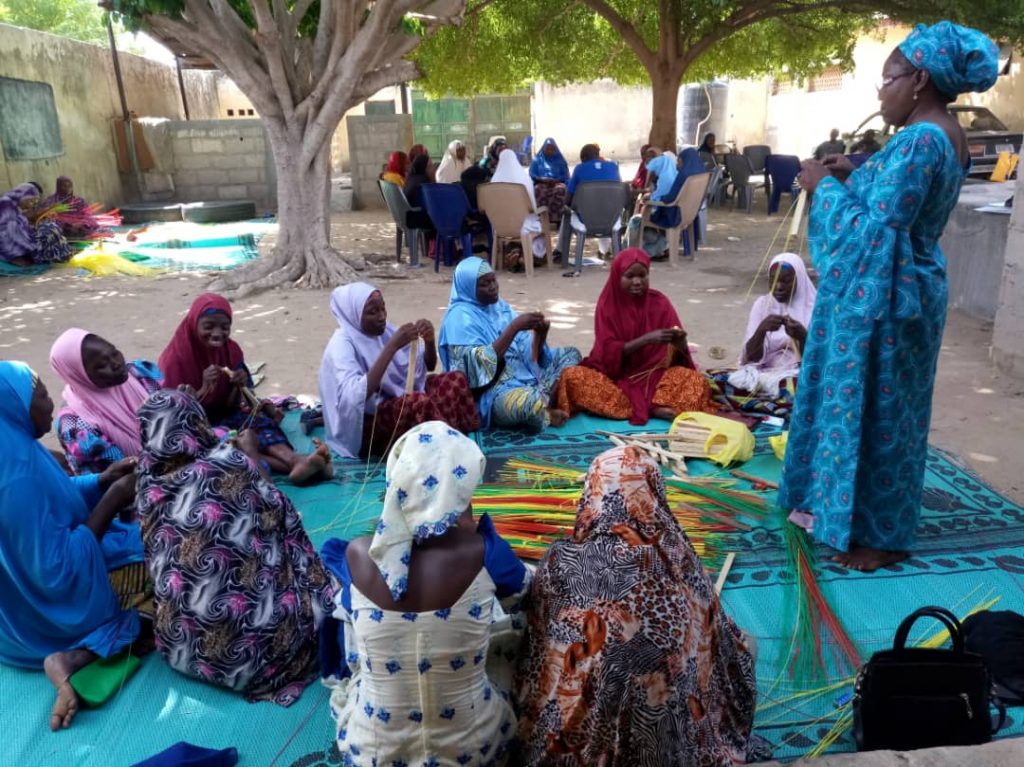The Healing through Expression (HtE) project is a unique and first of its kind Mental Health and Psychosocial Support (MHPSS) initiative in the Northeast of Nigeria, funded by the United Nations Population Fund (UNFPA), and designed to provide relieve from psychological distress associated with Gender Based Violence (GBV) and Living with Disabilities (LWD). Due to the sensitive nature of GBV, the discrimination and stigma attached to it, and the possibility of causing more harm to the project’s beneficiaries by way of association, the term is avoided, where possible during the implementation of the project. The project is open to all, mostly women and girls, as GBV awareness is a community-wide responsibility, and in all cases, preventative measures are much preferred over reactionary measures, which aim to address the problem after it has arrived at its ultimate conclusion (e.g., rape, battery, denial of basic rights). Nonetheless, during the sensitisation, advocacy and assessments, any beneficiary found to have survived or currently undergoing GBV-related challenges are given the full range of programming.

